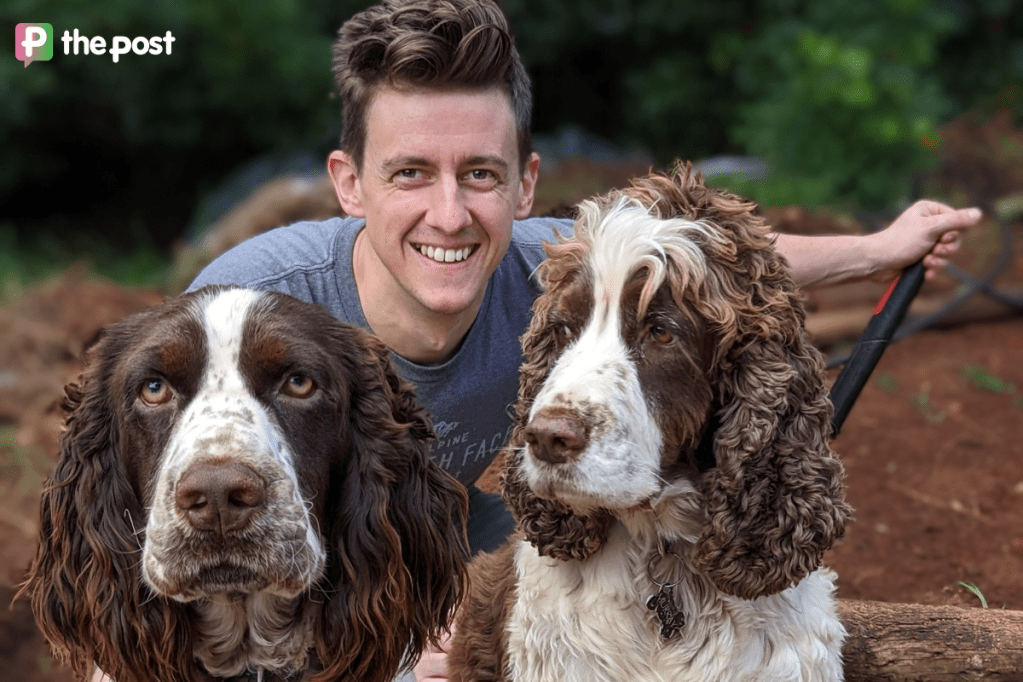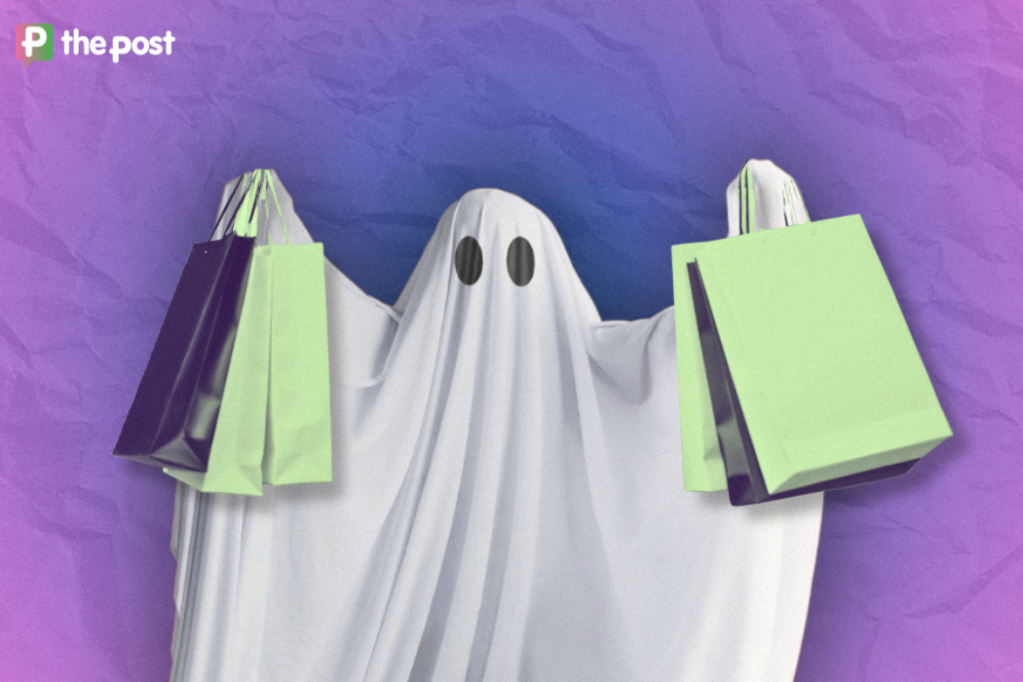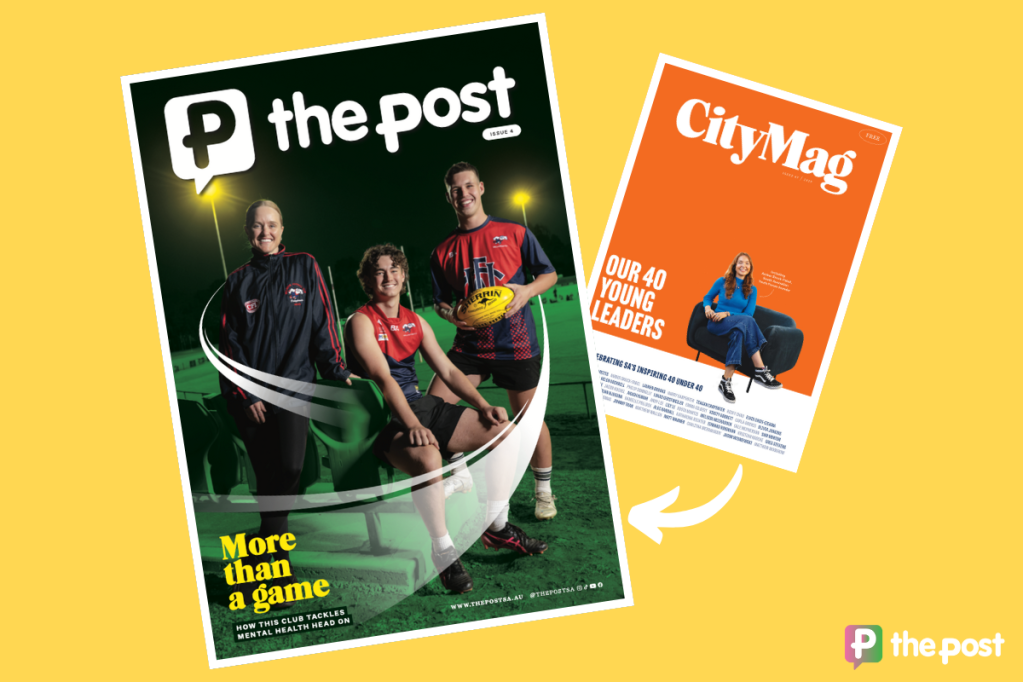What we know today, Tuesday July 28
Welcome to your serving of the day’s breaking news from South Australia, the nation and abroad. Follow this post for breaking news through the day.

- Marshall unveils new SA cabinet
- One new case as state COVID committee maintains border rules
- Vic records six more virus deaths as cases fall
- Payroll data reveals hit to SA wages
- Call to review ICAC after new commissioner announced
- MP wears garbage bag to protest Goers column
- Universities plead case for virus support
- Countries lock down as second wave rolls on
- Australian military to join US in South China Sea
- Australian Golf Open delay
- Markets: Tech firms, miners lead ASX rise
Marshall unveils new SA cabinet
Speaker Vincent Tarzia, Fleurieu dairy farmer David Basham and former Glenelg mayor Stephen Patterson will join the State Government’s new-look cabinet.
South Australian Premier Steven Marshall has unveiled his new cabinet this afternoon following the resignation of three senior ministers on Sunday.
Tarzia has been handed the portfolios of Police and Emergency Services and Correctional Services, Basham becomes Primary Industries and Regional Development Minister and Morphett takes on Trade and Investment
Attorney General Vickie Chapman will add Planning and Local Government to her portfolio and Corey Wingard will pick up Transport and Infrastructure and retain his existing portfolio of Sport, Recreation and Racing.
Read the full story here.
One new COVID-19 case in SA today

Photo: Tony Lewis/InDaily
South Australia recorded a new case of COVID-19 today, with Chief Public Health Officer Nicola Spurrier revealing the woman in her 20s had travelled here recently from Victoria with her family.
The approval for the woman to enter SA came under previous rules, last Saturday, however Spurrier said the system had worked by picking up the infection.
She said the woman was in hotel quarantine and did not pose a risk to the community.
She travelled to SA with three family members who are in home isolation along with another family member who already lived in Adelaide.
The woman had family in South Australia and was given an exemption to take up a new job here. However, those sorts of exemptions won’t be available from tonight, said Health Minister Stephen Wade.
“We’re very pleased there has been no exposure to any South Australians at all,” Spurrier said today.
“Our system has worked and the mandatory testing for anybody coming from Victoria did pick up that this woman was COVID positive.”
The state now has three active cases of COVID-19, all from people who have travelled here from interstate.
The news came after South Australia’s transition committee met today to consider the state’s ongoing response to the COVID-19 pandemic ahead of tougher border measures coming into force with Victoria.
The committee looked at the quarantine arrangements for people coming from NSW and the ACT but decided to maintain current arrangements which require travellers to self-isolate for 14 days.
A number of clusters of virus infections in and around Sydney remain a concern for SA authorities.
From midnight tonight, the state’s hard border closure with Victoria will be extended to prevent any South Australians from returning home.
There were no new cases of COVID-19 recorded yesterday, SA Health reported.
Vic records six more virus deaths as cases fall
Victoria has recorded 384 more coronavirus cases and another six deaths.
Premier Daniel Andrews said this morning the new deaths were two people in their 90s, three in their 80s and one person in their 70s. Four of the six are linked to aged care facilities.
The deaths take the state’s toll to 83 and the national figure to 167.
You might like
Aged care residents in coronavirus-riddled private aged care homes will be transferred out and into hospitals in a state government intervention.
Elective surgery, with the exception of the most urgent cases, will be stopped to free up beds for the residents.
“Some of the stories we’ve heard, some of what’s gone on in some of these settings is simply not acceptable and it’s not about blame, it’s not about demarcations and having disputes about who is in charge of what,” Andrews said.
“This does not mean that every resident in an aged care facility, a private sector aged care facility that has an outbreak, will be moved en masse to a public, or indeed to a private, hospital.”
Aged care is the responsibility of the federal government and it has increased its interventions in recent weeks as deaths in Victoria’s homes mounted.
Prime Minister Scott Morrison will return to Canberra for crisis talks about deadly coronavirus outbreaks in Victorian nursing homes.
Morrison has cut short his planned tour of Queensland as fears mount about more deaths of aged care residents across Melbourne.
“The urgency of the situation requires me to return to Canberra,” he told reporters on the Sunshine Coast this morning.
Aged care has emerged as Victoria’s coronavirus flashpoint, with fears the outbreak will kill more residents in coming days.
Nine of Australia’s 12 deaths reported on Monday and Tuesday were linked to Melbourne nursing homes.
Federal and state health authorities are concerned community transmission of the disease is driving infections among aged care residents and staff.
Meanwhile, modelling by health authorities suggests Monday’s record 532 new cases could mark the peak of the crisis.
Among those in hospital is a newborn baby, after an outbreak in the neonatal intensive care unit at the Royal Children’s Hospital.
The infant, two parents and a healthcare worker have tested positive.
All babies, staff and parents who have visited the ward since July 12 will be tested.
VicHealth chief executive Dr Sandro Demaio said cases were not expected to come down to single digits for “many, many weeks”.
“The delay between taking measures and then seeing those hospitalisation numbers come down – that could take between two and even eight weeks,” he told ABC, adding death rates could take even longer to lower.
Premier Daniel Andrews said people who are going to work sick – including those who work at aged care facilities – are the “biggest driver” of the state’s second wave.
He even flagged the possibility some industries could be shut down.
Payroll data reveals hit to SA wages
The number of jobs in South Australia between mid-March and mid-July fell by 5.5 per cent, according to ABS data released this morning.
Total wages were also down by 4.1 per cent from the week ending March 14 compared with the week ending July 11.
The South Australian figures are slightly healthier than the national average, which showed payroll jobs decreased by 5.6 per cent and wages down 4.8 per cent for the period.
In South Australia, Arts and Recreation Services (-21.8 per cent), Accommodation and Food Services (-18.4 per cent) and Agriculture, Forestry and Fishing (-12.4 per cent) were the hardest hit industries.
Falls in state payroll jobs in the major industries of Mining (-4.2 per cent), Manufacturing (-5.4 per cent) and Construction (-4 per cent) were roughly in line with the state average.
The job losses hit males (-5.9 per cent) and females (-5.5 per cent) fairly evenly but the total amount of wages paid to men (-6.2 per cent) took a bigger hit than their female counterparts (-1.1 per cent.
The only demographic in South Australia to increase its total wages was the under-20s, who boosted their share of the wages pie by a significant 16.3 percent over the four-month period despite a 0.7 per cent decline in the number of teens with a job.
Call to review ICAC after new commissioner announced

Anti-corruption commissioner Bruce Lander
The appointment of a new anti-corruption commissioner should spark a review of South Australia’s ICAC including its funding and mandate, says a former senior officer in the Ombudsman’s office.
In an opinion piece to be published later today by InDaily, Kym Davey argues that Ann Vanstone’s appointment to replace inaugural commissioner Bruce Lander should lead to a rethink of the way the state’s public integrity bodies work together.
Davey, who worked in the Ombudsman’s office from 2011 to 2019, questions the relatively large budget given to ICAC compared to the Ombudsman and questions the ICAC’s record.
“Aside from the recent publicity covering the arrest of a sitting magistrate, there have been no significant corruption ‘busts’ resulting in successful prosecution,” he says.
He also highlights concerns that the ICAC oversight of police complaints has “in fact given police more control over complaint handling than under the old Police Ombudsman system”.
“The media have railed against a ‘cone of silence’ because they believe the new law keeps internal investigations of officer misconduct under wraps. Police complain because they claim Mr Lander is referring hundreds of trivial matters to them for investigation and then wasting police resources by cross questioning their handling of these. The cost saving measure of abolishing the Office of the Police Ombudsman now looks to have created more problems than it solved.”
He suggests some changes to fix the problems, including legislating to give the Ombudsman oversight of misconduct and maladministration matters – leaving a smaller ICAC to manage a defined corruption mandate.
You can read Kym Davey’s full argument on InDaily here.
MP wears garbage bag to protest Peter Goers column
Federal Liberal politician Nicolle Flint has donned a garbage bag dress in protest after Sunday Mail columnist and ABC Radio host Peter Goers used his weekend piece to discuss her fashion sense.
Goers, who also described Flint’s fellow Liberal MP David Basham as “king of the open shirt”, critiques her “vast wardrobe” and “pearly smile”.
“She’s (sic) presents herself in her own newsletter, 23 times as a fashion plate,” Goers wrote.
The Boothby MP took to Twitter yesterday to protest the Goers column by wearing a garbage bag, attracting almost 500 comments, mainly in support.
“So Mr Goers, what I want to know is what should a woman in politics wear?” she asked.
“How about a garbage bag to match your rubbish views.”
"Sick of sexist garbage?"
"I am, which is why I’m calling out @abcadelaide’s Peter Goers rubbish views about my appearance, published in yesterday's @theTiser Sunday Mail."
"It’s time women in public life are judged on what they stand for, not what they look like. #GarbagelikeGoers pic.twitter.com/tk9DRyM0nN"
"— Nicolle Flint (@NicolleFlint) July 27, 2020"
Universities plead case for virus support
Stay informed, daily
Universities will present their case to senators for extra support in the face of plummeting revenue and expected higher demand during the coronavirus pandemic.
A range of tertiary education bodies will face the COVID-19 Senate committee today.
The sector forecasts it will lose $16 billion over the next four years, about three-quarters of which is down to international students being unable to attend.
It also says it could shed 21,000 staff within the next year.
The government has guaranteed universities it will fund the expected number of domestic student places throughout 2020 even if some drop out because of the crisis.
It has also outlined a package of changes to course funding it says will increase the number of places on offer by 39,000 over the next three years, although that doesn’t come with any extra money other than indexation.
Universities Australia says the sector is grateful for the funding guarantee for this year and an easing of the regulatory burden.
But it is disappointed the government has changed the rules several times to explicitly exclude university staff from the JobKeeper wage subsidy scheme.
“The current capped system will not be able to cater to those additional Australians who want to study to boost their skills to work in the post-COVID-19 economy,” Universities Australia wrote in a submission to the committee.
The committee will also hear from TAFE directors and the unions that represent university staff and students.
Countries lock down as second wave rolls on
The WHO has praised Japan and Australia for containing COVID-19 but warns of a deadly second wave amid fresh lockdowns.
Several Asian countries have imposed new restrictions as the world confronts the prospect of a second wave of COVID-19 infections.
In the United States, where infection rates have been climbing since mid-June, President Donald Trump’s national security adviser Robert O’Brien became the most senior White House official to test positive.
Surges were reported in a number of countries previously singled out as places where the virus was under control.
Vietnam locked down the city of Danang and forced tens of thousands of visitors to relocate, mainland China confirmed the most new locally-transmitted cases since early March and Papua New Guinea shut its borders.
Hong Kong banned gatherings of more than two people, closed down restaurant dining and introduced mandatory face masks in public places.
Just weeks after European countries trumpeted the reopening of tourism, a surge in infections in Spain prompted the UK to order all travellers from there to quarantine for two weeks, torpedoing the travel plans of hundreds of thousands of people.
The World Health Organisation said travel restrictions could not be the answer for the long term and countries had to do more to halt the spread inside their borders by adopting proven strategies such as physical distancing and the wearing of masks.
“It is going to be almost impossible for individual countries to keep their borders shut for the foreseeable future. Economies have to open up, people have to work, trade has to resume,” WHO emergencies programme director Mike Ryan said.
“What is clear is pressure on the virus pushes the numbers down. Release that pressure and cases creep back up.”
Ryan praised Japan and Australia for having had “good success in containing the disease” but said that it was to be expected that the virus would resurge in areas with active transmission if restrictions are lifted and mobility increased.
“And that is what has essentially occurred in many countries.”
Australian military to join US in South China Sea

Picture courtesy US Navy
Australian naval forces are set to join the United States in military exercises through the South China Sea after branding Beijing’s maritime claims to the disputed waters unlawful.
Foreign Minister Marise Payne and Defence Minister Linda Reynolds will meet with their US counterparts in Washington this week.
It is expected Australia will be asked to join increased US naval missions to push back against China’s militarisation of disputed territories in the South China Sea.
Ahead of the meeting, Senator Payne played down the risk of a miscalculation or mistake by either side during the joint military exercises, which could spark a heated conflict.
Aus Golf Open delay

Australian Open champion Matt Jones will not be defending his title this year. Picture: Golf Australia.
Golf Australia has delayed the sport’s national open due to be held in November but is hopeful the event can still be staged this summer.
The Australian Open was scheduled to be held at Melbourne’s Kingston Heath course in November before Golf Australia this morning announced the indefinite delay.
“These are very challenging times for all Australians and the uncertainty the global pandemic has caused makes it very difficult to be definitive in relation to future dates at this time,” Golf Australia operations manager Simon Brookhouse said.
“We will continue our positive ongoing discussions with our major stakeholders which include the Victorian Government, our corporate partners, the ISPS Handa PGA Tour of Australasia and other international tours about potential dates.
“However it may have to be in the January-March 2021 window with so many variables still to play out.”
Markets: Miners lead ASX rise
Shares have held on to early gains on the ASX at noon as hopes of the US Federal Reserve continuing its stimulus and a surge in gold prices helped lift investors mood.
The S&P/ASX200 benchmark index was higher by 45.2 points, or 0.75 per cent, at 6089.4 points at 11.30am.
The All Ordinaries index was 46.2 points, or 0.75 per cent higher, at 6215.8.
The gains were led by mining shares, with the sector index up more than two per cent, and supported by a lift in industrials and consumer staples.
US markets ended higher overnight as US Senate Republicans raced to complete details of a $1 trillion coronavirus aid proposal.
In the local market, the materials sector was the best performer, helped by gold miners as prices of the precious metal hit record highs.
Spot gold rose to a record high of $US1,945.16 per ounce overnight, as investors sought refuge from the possible hit to the global economy.
Most major miners gained between 2 and 4 per cent including BHP, Rio Tinto and Fortescue as iron ore prices stayed elevated.
BHP climbed 2.7 per cent to $38.41, Rio Tinto rose 2.4 per cent to $105.35 and Fortescue gained 4.0 per cent to $17.03.
Meanwhile, the US dollar continues to be lower against major currencies.
The Australian dollar was buying 71.67 US cents at noon, up from 71.32 US cents at Monday’s close.
Refresh this page for regular updates through the day.
– with AAP and Reuters








